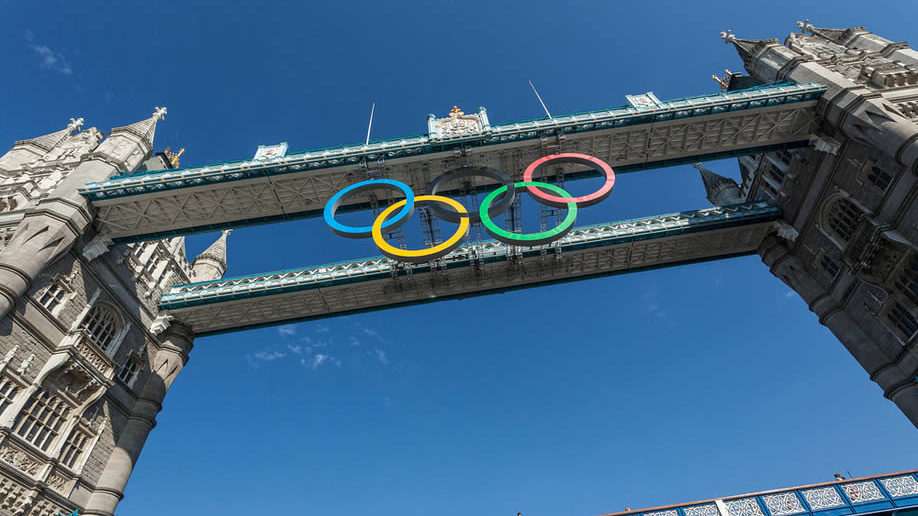
Photograph by Duncan Rawlinson
Sport is at its most brilliant, and most vulnerable, when global news bulletins put everything from economic crises to wars down the running order. For better or for worse, the Olympic Games can do that.
Just over half way into the London Games, with that mammoth pageant shown to a quarter of mankind now just a memory, the best and the worst of the sport thus far involved the Super Powers, China and America. We might concentrate on the swimming pool, rather than the badminton hall, the velodrome or the boxing ring which all brought dubious practices to the Olympic ethos this week.
What struck me as utter hypocrisy was the US coach John Leonard damning Ye Shiwen, the 16-year-old Chinese swimmer, the instant she struck her first gold, and shattered her first world record in London.
The final 50 metres of Ye’s 400m women’s individual medley was swum faster than the American Ryan Lochte in the men’s race.
It was truly extraordinary but, if I am honest, my first thoughts as Ye overhauled the opposition was clouded. Sadly, the history of modern sports, including Chinese swimming, provokes suspicion.
But if we are to watch young people striving to break records, we sometimes must suspend our disbelief. Otherwise there can be no enjoyment of extraordinary performance, and ultimately no Games worth watching.
Those in a position of responsibility, and even journalists and broadcasters, have a duty to be vigilant. However, we cannot, or we should not, publicly accuse anyone without evidence to support the suspicion.
It is a bit rich of Americans, from the land that gave us the imperious athlete Marion Jones and then jailed her for lying on oath about systemic drug abuse, to point the finger so blatantly at a young Chinese girl.
It ill-behoves anyone from the United States to throw stones and insults about doping when courts have proved that so many American idols from baseball to track and field have been caught injecting themselves, and then perjuring themselves when cornered.
None of that stopped John Leonard, the executive director of the World Swimming Coaches Association for the past 23 years, telling journalists: “She looks like a superwoman, but any time someone looks like superwoman in the history of our sport they have later been found guilty of doping.” He called Ye’s swim “disturbing” and compared it to the Irish swimmer Michelle Smith who won the 400 medley event at the Atlanta Olympics in 1996 and was later exposed as a drug cheat.
Ye denies Leonard’s insinuation. Every accused Olympian would deny it. Her dope tests have never shown any trace of prohibited substance. Professor Arne Ljungqvist, who chairs the International Olympic Committee and who decades ago led the fight against doping abuse in sports, has confirmed that Ye has never be shown to cheat in any detectable way.
Leonard still refuses to back off. “I am sure,” he said, “that FINA (the world swimming authority) have taken every sample they can take. The samples will be available for testing for eight years, and if there is something unusual going on in terms of genetic manipulation or something else, I would suspect that over eight years science will move fast enough to catch it.”
In other words, the American will mistrust what he saw from the Chinese girl for that long, maybe forever.
What does not appear to concern Leonard is the almost inhumane way that Ye, like countless Chinese infants, was taken from her family at six years of age and pushed to swim to the point of hurt every single day, or be thrown out of the system.
That might be a worse, or at least an equivalent, abuse of childhood than the curse of drugs that zealous competitors around the world – East and certainly West – get drawn into. The conspirators here include totalitarian governments and in “free” societies the parents and coaches who pay crooked doctors or scientists to provide drugs that they think enhance athletic performance.
Yet Leonard chose to dismiss any comparison between Ye breaking a world record at 16 and Michael Phelps breaking the world 200 metre butterfly record when he was 15.
Phelps, the “Baltimore Bullet”, has just surpassed the Soviet Union gymnast Larisa Latynina’s record for accumulating Olympic medals. The elegant Latynina won 18 medals in her youth, and was actually poolside to see Phelps win his 19th, and later his 20th, Olympic medal.
Phelps has broken something else. Three years ago he transgressed US law and was photographed smoking marijuana. Like Ye, he has never failed a swimming dope test.
However, perhaps playing political tit for tat, Chen Zhanghao, China’s team doctor at the Olympics in Los Angeles, Seoul and Barcelona, now says: “What is abnormal? Phelps broke seven world records, is he normal?” Dr Chen told the Sydney Morning Herald: “I have suspected Phelps but, without evidence, we have kept silent.”
Caught smoking a reefer is not comparable to doping to cheat in the pool. And so, again, I prefer unless evidence proves something different, to regard Phelps as something phenomenal. He also showed this week that he knew how to lose as well as to win. My most cherished memory of the Games thus far is of Phelps after he was beaten into second place in the 200 metre butterfly by South Africa’s Chad Le Clos.
Le Clos was in tears, almost in a state of disbelief. He had out-swam the man who was his boyhood idol. Phelps not only took it graciously, he guided the victor through the protocol of presenting his precious gold medal to the fans and the media.
The 27-year-old American handing over to a 20-year-old South African. Truly the spirit of inspiring the next generation, and the way that Phelps did it could not be suspected of being fake in any way.
Written by Rob Hughes
Rob Hughes has written, broadcast and edited for four decades. His columns in International Herald Tribune since 1977 reflect the global phenomenon of soccer to readers in 180 countries.




